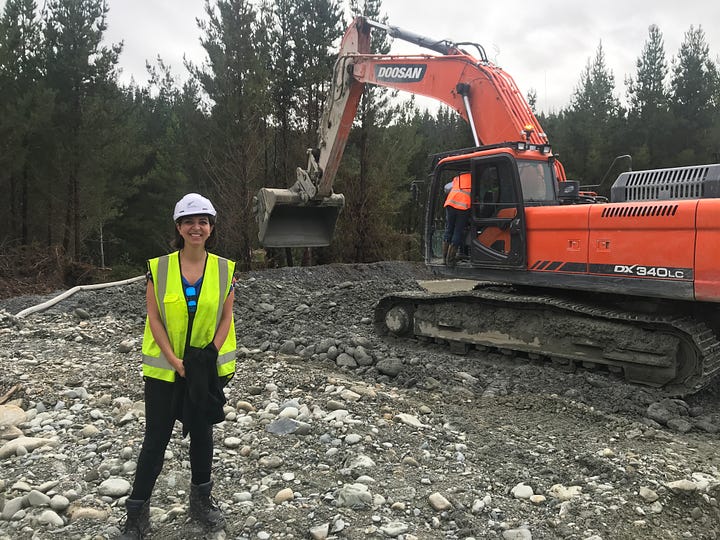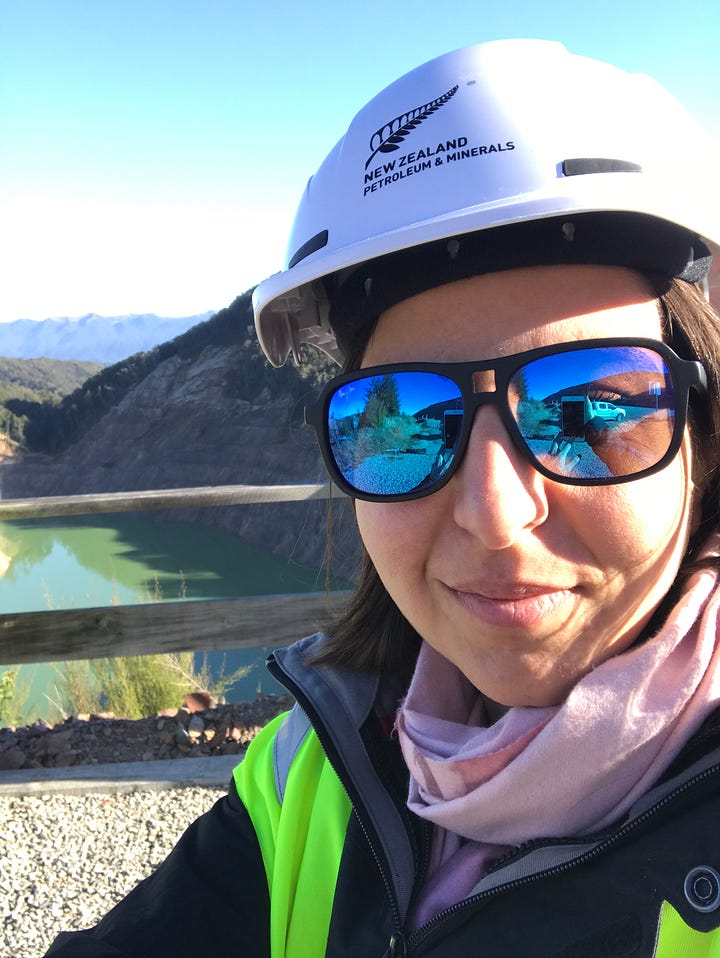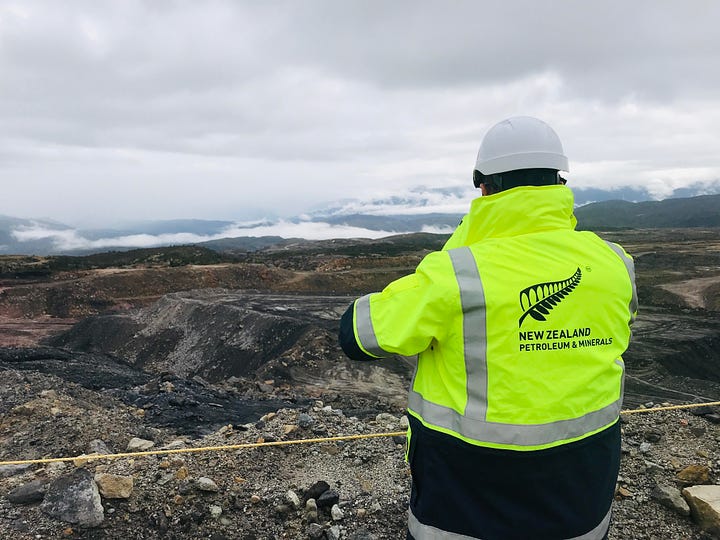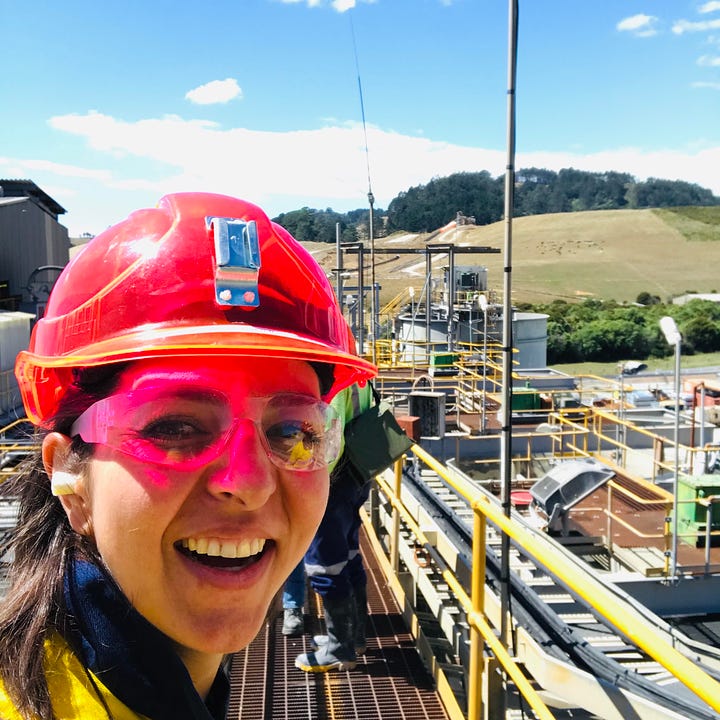The Fast Track Bill in New Zealand: Consequence to our Pace of Change?
Is it a consequence of having missed the balance between political transformation and political stability?
Welcome to my first out-of-cycle article. I felt this warranted a special edition given the controversy surrounding the new Fast Track Approval Bill and the high stakes involved. I was also inspired by Bryce Edwards' call to action to "ensure that the new Fast-Track Approvals Bill—currently being pushed through the government—works in the public interest and doesn’t foster corruption or lobbying that leads to poor decisions."
So, in addition to expressing my own views, I am also writing this to amplify Bryce Edwards' call to expand the #FastTrackWatch. I hope this is the first of many articles where I can share my thoughts and insights on the development and implementation of the Fast Track Bill as it unfolds. I will approach this from the perspective of impacts this bill will have on social cohesion, an area in which I am currently knee deep through my PhD research at Te Herenga Waka, Victoria University of Wellington.
This bill has prompted considerable reflection on how we manage the pace of social and political change. But what I have been thinking about is: is this bill perhaps a consequence of our failure to strike the right balance between political and policy stability versus change? Eager not to come across as the tone-deaf uncle at the party, I recognise the risks and stakes involved with this bill. However, I will (always) strive to present a balanced view in my discussion.
So in this out-of-cycle article, I will talk about:
Going from the far Green to the West Coast—going from working for James Shaw in 2018 to managing the team that accepted or declined all mining permits in New Zealand in 2019
The Fast Track Bill in Context—how my professional journey informs how I think about this bill
Rethinking the Fast Track Bill—what are we not considering when debating the Fast Track Bill
Achieving the right alchemy of change—rethinking how we advocate for change
Going from the far Green to the West Coast
In 2018, the Labour government, supported by the Green Party, announced groundbreaking initiatives to safeguard our natural heritage—committing to no new mines on conservation land and halting new offshore oil and gas exploration permits. These decisions were celebrated widely, heralding a shift towards a more sustainable future.
I remember the announcement about the offshore exploration particularly vividly—it coincided with my first day as the StatsNZ Private Secretary to Minister James Shaw. I remember having to sneak off to the bathroom to look up what all the excitement was about, as I was completely naive to environmental policy.
Following my year with Minister Shaw, I got a one year secondment to the Ministry of Business, Innovation, and Employment (MBIE) as the manager of the minerals team. This role deepened my understanding of New Zealand's mining policies and involved extensive travel across the country, working with a team of brilliant geologists. It was an enlightening experience that significantly broadened my perspective on how our policies are shaped and implemented.
Interestingly, while I wasn’t directly involved with environmental policies while working with James Shaw, I vicariously absorbed the work being done by my colleagues from the Ministry of Environment on the Zero Carbon Bill. It felt somewhat ironic to transition from one side of the environmental debate to the opposite, engaging directly with the mining sector during 2019.




The policies I had just seen supported by my former professional team had a significant impact on the mining industry. I saw and heard first hand from the mining sector that year how these changes threatened their livelihoods and well-being—concerns that mostly seemed to be overlooked by the then left-wing government. In 2020, Newshub stated that “National is also hoping to capitalise on Labour's 'no mining on conservation land' policy in West Coast mining country. ‘This is the sort of attitude they've seen from the government—that it's simply out of touch with reality’” Judith Collins said. It didn’t happen in 2020, but I do wonder if this 2024 context is a direct result of those laws?
That year, I learned that nothing is as simple as one side of the political isle claims and thinking that anything is simple and obvious is creating problems. I keep seeing that we remain focused on the surface of current events, reacting quickly and with outrage. And in this state of constant outrage, we miss the subtle shifts happening in the deep dimensions of attitudes, values, and ideologies. Failing to come to terms or understand the “tectonic changes of power and cultural constellations.”1
The Fast Track Bill in context
Let us hypothesise that the Fast Track Bill (FTB) is a legislative response to this period where New Zealand enhanced its regulation at what seemed like any cost. If we look at the FTB with some (maybe naive) optimism, it seeks to provide a more efficient pathway for infrastructure development, including some mining projects that have been left in a state of legal and operational limbo.
I think that when thinking about the FTB, it's crucial to understand the legal, regulatory, and operational nuances that have led us to this point. Which I feel at times few people really question, understand or discuss. And I think matter greatly when developing our views. Which are so strong and polarized at the moment, and temper them with questions like, why did this happen? What led us here? What can we do different? I’m campaigning for less outrage and more questioning, scrutiny and upskilling in the in and out of the topics we care about. I’m not immune to the risk of me sounding like the tone deaf dude that’s just telling you to “calm down”, when you are mid rant. But I honestly think there is too much at stake to keep adding coal to the fire…

I think this bill represents a crossroads where political ambition meets the practicalities of governance, and its impact on the mining sector in New Zealand will be a testament to our ability to balance economic development with environmental stewardship. While the environment cant afford us to keep not thinking about it, I also think we don’t fully understand how things we need, use, buy and eat are produced.
Like milk for example…
The production of milk needs coal, which is why Fonterra2 is one of the biggest consumers of coal in New Zealand. This is just one example. So there is a paradox that is rarely discussed: many of the technologies and products championed by environmentalists—designed to reduce our carbon footprint and foster a more sustainable future—require materials that are sourced through mining. For instance, electric car batteries are dependent on lithium, cobalt, and nickel, all of which must be extracted from the earth.
Moreover, renewable energy infrastructure, such as solar panels and wind turbines, relies heavily on a variety of mined materials. Solar panels use silicon, silver, and tellurium, while wind turbines require a substantial amount of steel, as well as rare earth elements for magnets that are vital in the generation of electricity. Even the construction of energy-efficient buildings involves a range of mined materials, from copper wiring for electricity to zinc for galvanised steel that resists corrosion.
In essence, while we strive to minimise the environmental impact of mining and push for responsible sourcing practices, it's clear that the industry plays a pivotal role in enabling us to achieve our environmental objectives. The challenge lies in ensuring that mining is conducted in the most sustainable manner possible, balancing our ecological aspirations with the practical necessities of material extraction. Which many mining companies do, but again, rarely get any public light.
It's a complex brew, isn't it? When we rush transformations, especially in policy, the fallout can be less than ideal, sparking widespread controversy and backlash. This bill, with its sweeping implications and the uproar it's caused, serves as a perfect case study.
Achieving the Right Alchemy of Change
Change is necessary and inevitable, but its alchemy lies in the balance, timing and approach. It's a delicate dance between progress and stability, and getting it wrong can be costly. I hope the powers this bill will give the ministers are not abused. Not just for the health of our democracy but for the unintended consequence it will have in our capacity to trust not just politicians but each other. We cannot afford more distance between different ideological beliefs, groups and policies.
The Fast Track Bill will only succeed if we all do our bit to ask the right questions. Which is why I resonated so much with Bryce’s article about scrutiny—more than just yelling at the thing. Lets unpack it, watch it and debate it. What are the pros? Where can it help? How transparent is the process?
So, what can we take away from the Fast Track Bill saga? It's a clear reminder of the need for careful, inclusive decision-making in politics. As we move forward, let's aim for a balanced approach that considers both the benefits of change and the importance of maintaining stability.
Berger (1998). The Limits of Social Cohesion; Conflict and Mediation in Pluralistic Societies.
It is important to note that Fonterra has been working on reducing its reliance on coal as part of its efforts to lower greenhouse gas emissions. The company has set targets to reduce emissions and increase energy efficiency, including plans to transition to more sustainable energy sources.




Well done Natalia! There are many of us out here who think like you and we are beyond frustrated. The era we are living in is just so whack. We are caught between short term thinkers maybe because we now have careerist politicians and others who think making money is the path to heaven.
On top of that, just trying to be the voice of reason or discuss issues gets you cancelled these days.